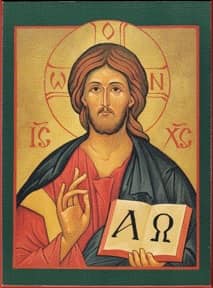 Gospel of 17 July 2020
Gospel of 17 July 2020
Friday of the Fifteenth Week in Ordinary Time
Matthew 12:1-8
The Son of Man is master of the sabbath
Jesus took a walk one sabbath day through the cornfields. His disciples were hungry and began to pick ears of corn and eat them. The Pharisees noticed it and said to him, ‘Look, your disciples are doing something that is forbidden on the sabbath.’ But he said to them, ‘Have you not read what David did when he and his followers were hungry, how he went into the house of God and how they ate the loaves of offering which neither he nor his followers were allowed to eat, but which were for the priests alone? Or again, have you not read in the Law that on the sabbath day the Temple priests break the sabbath without being blamed for it? Now here, I tell you, is something greater than the Temple. And if you had understood the meaning of the words: “What I want is mercy, not sacrifice,” you would not have condemned the blameless. For the Son of Man is master of the sabbath.
Reflexion
In Chapter 12 of Matthew’s gospel, tensions between our Lord and the Pharisees reach a new level. The issue is not just that our Lord is seen as a rebel who deliberately breaks the Mosaic Law or teaches His disciples to break the Law, which interestingly, is a popular image that many moderns wish to project upon Him. The real Jesus kept the Law and expected His disciples to do the same. The Jews’ issue with Him is far graver - our Lord is actually claiming that He possesses divine prerogatives in both His actions as well as His words.
Along with circumcision and the dietary laws, the Sabbath rest was one of the main identity markers for the Jews, setting them apart from the Gentiles. Surrounded by pagans who did not observe the Sabbath rest, this particularly Jewish observance stood out as an expression of loyalty to God’s covenant.
Why was the disciples’ action in picking ears of corn to feed themselves so scandalous and objectionable to the Pharisees? Well, the latter saw this as a form of “harvesting,” a work that was prohibited on the Sabbath. And so the Pharisees come to Jesus with this complaint about His disciples which is actually targeted at Him, “Look, your disciples are doing something that is forbidden on the Sabbath.
Jesus does not allow the Pharisees to set the tone of the debate. Instead, He raises the discussion to a different level.
First, He appeals to the Old Testament story of David and his companions who fed themselves with the bread offering in the house of God. In referring to this story, Our Lord is actually comparing Himself to David. He’s making a messianic claim.
Second, our Lord then argues that the priests who serve in the Temple are working but yet do not violate the Sabbath because the Sabbath was meant to free men to worship God. Such worship could only be done in the Temple, where the priests were exempt from Sabbath prohibitions. But then our Lord adds, “Now here, I tell you, is something greater than the Temple"; Jesus is referring to Himself. The temple was the holy sanctuary where God dwelt among His people. Now, by claiming that He is greater than the Temple, our Lord is saying that He is the new focal point for worship, and if He is the new Temple, His disciples are the new ministers/ priests offering worship by serving Him.
Finally, our Lord makes the most outrageous claim: He is “the Lord of the Sabbath.” All the Jews knew that only God could claim this title. By calling Himself “the Lord of the Sabbath”, Jesus was putting Himself on par with God. He is not just a teacher or even a prophet. He is more than a messianic descendant of David. He may be greater than the Temple but most importantly, Jesus is God!
As we come to the end of another week of toil and labour, we are invited by our Lord to find rest in Him. He, who is the Messiah and the New Temple, the Lord of the Sabbath, He is God Incarnate. And that is the reason why we rejoice because only God alone can grant us the life-giving and life-sustaining rest that we need.
